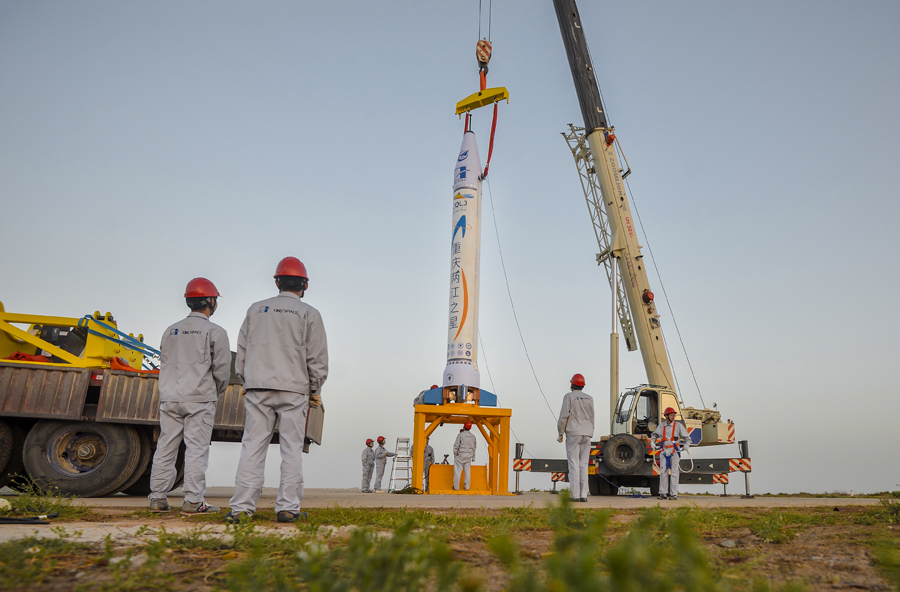Space industry soars to new heights
By ZHAO LEI | China Daily | Updated: 2019-01-10 07:27

Commercial advances
Zhang Di, a senior rocket scientist, said that in addition to the impetus from huge State-backed programs, progress in the commercial space sector last year also contributed to China's rise in the global space arena. Zhang is chairman of Expace Technology, a China Aerospace Science and Industry Corp subsidiary that builds the Kuaizhou solid-propellant carrier rocket.
Last year, three private space startups in Beijing-OneSpace, i-Space and LandSpace-carried out launches at government-run testing sites, marking the start of the private sector's participation in the space-launch market.
LandSpace appeared to have moved faster than the others, as it launched a carrier rocket in late October at the Jiuquan Satellite Launch Center. However, the rocket failed to place the satellite in orbit due to a malfunction in flight. The rockets launched by OneSpace and i-Space were sounding ones, which cannot place payloads into orbit.
Zhang Changwu, CEO of Land-Space, said that despite the failure of the maiden launch of the company's ZQ-1 rocket, the mission was still important for the country's space industry because it was the first attempt by a Chinese private company to build and launch a carrier rocket. It also showed the strength of the private space sector.
"The overall performance of our rocket on its debut flight was good enough to give us confidence in our capability and future growth," he said.
"Looking to the future, China's space industry needs changes and innovations. As State-owned programs are developing new rockets and facing new challenges, we would be wise not to put all our eggs in one basket. Therefore, the country needs a diversified portfolio in the space-launch field," Zhang said.
"Private rocket companies are willing and ready to undertake some government assignments or to design rockets based on the requirements of government programs."
Last year, LandSpace said its production base in Huzhou, Zhejiang province-the first privately owned carrier rocket factory in China and the largest of its kind in Asia-had begun operations and would be used to manufacture the company's first liquid-fuel rocket and the country's first methane rocket engine.
Both LandSpace and i-Space plan to launch at least one carrier rocket this year.
Zhang Di, the rocket scientist, said, "There have been increasing demands for commercial launch services from State-owned and private satellite enterprises, giving opportunities to private rocket firms."
He predicted that State-owned and private rocket companies are likely to make at least 40 launches this year, maintaining China's No 1 position globally.
"As far as Expace is concerned, at least five Kuaizhou launches are scheduled in 2019. But our clients' demands go beyond five launches, so if everything goes well, 10 are likely," he said.
























